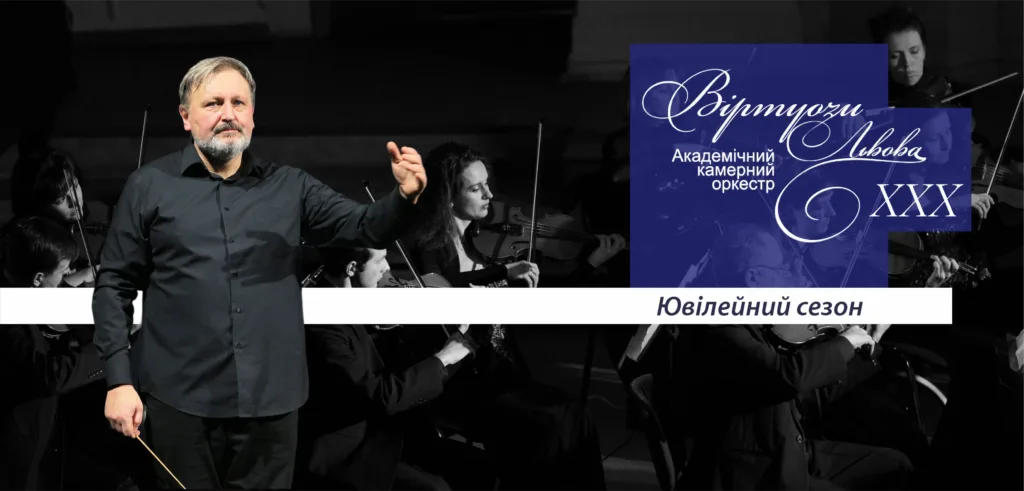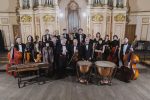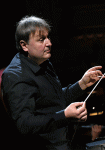Lviv Virtuosos: XXX Anniversary Season
S.Lyudkevych Concert Hall
150–390

Artists:
- Academic Chamber Orchestra “Lviv Virtuosos”
- Yurii Bervetskyi, conductor
Program:
- Benjamin Britten. “Simple Symphony” Op. 4
- Anton Bruckner. Adagio from Symphony No. 7 in E major, WAB 107
- Ottorino Respighi. Suite No. 3 for string orchestra “Antiche Danze ed Arie per Liuto”
The continuation of the jubilee events of the Lviv Virtuosos orchestra will be an exquisite evening of chamber music in a symphonic context, as Benjamin Britten’s “Simple Symphony” and “Adagio” from Anton Bruckner’s Symphony No. 7 and Ottorino Respighi’s Suite for String Orchestra will be performed. The well-known Lviv conductor Yurii Bervetskyi will lead the orchestra through these music paths.
The opening evening was written by the young twenty-year-old Britten, “Simple Symphony”. After finishing his last semester at the Royal College of Music, the composer hurried home, where he reviewed his youthful works, summing up his youth. They turned out to be quite a lot because musical talent manifested itself in him extremely early – at a time when his peers were mastering reading and writing, Britten was already composing his own works. This is how the idea was born to combine them into a symphony, each part of which would be based on two of the composer’s children’s plays.
The first movement, Boisterous Bourrée, is inspired by the 1925 piano suite and the song “Now the King is Home Again”. In the second movement, “Playful Pizzicato”, Britten turned to Rudyard Kipling’s 1924 piano sonata and song. The third part became a musical prediction of the future mature style of the composer because it was the Sentimental Sarabande, which is also built on the themes of a piano suite and a waltz, that managed to touch the deep lyricism characteristic of an adult Britten.
The symphony ends with a sublime life-affirming finale, in which you can also hear the influence of another British genius – Edward Elgar.
A counterweight to Britten’s youthful impulse will be the profoundly baroque Suite for Strings of the leading symphonist of the 20th century, Ottorino Respighi, in which the famous Italian experiments with a collection of works for the lute of the 16th and 17th centuries. The iconic Adagio from Anton Bruckner’s Symphony No. 7 will complete the program. It was the Seventh Symphony that brought Bruckner to the heights of worldwide recognition. Bruckner wrote the second part as a sign of gratitude, respect, and memory of the artist who ignited the symphonic spark in him – Richard Wagner.



